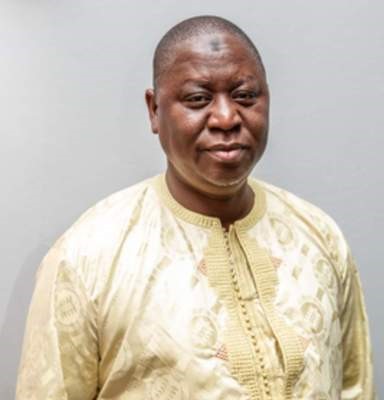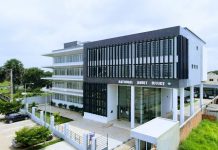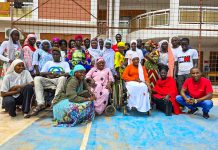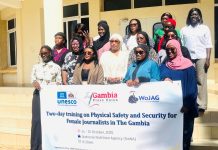By Nelson Manneh
The Gambia Bureau of Statistics (GBoS) on Thursday, 5 August 2024 launched the Social Registry Phase Four data collection exercise to be held in Kanifing and Banjul respectively.
The fourth Phase Social Registry Data Collection Exercise is the final phase. The first phase was conducted in 2020 and covered 30 Districts in URR, CRR, LRR, Fonis, and 1 District in NBR (Sabach Sanjal). The second phase covered the remaining 6 Districts of NBR while the third phase was conducted in 2023 and covered the 4 Districts in Kombo in WCR.
The Gambia Bureau of Statistics (GBOS) is a government Department under the Ministry of Finance and Economic Affairs responsible for the collection, analysis, and dissemination of statistical data.
This year the Bureau of Statistics will cover the remaining LGAs of the country to have full coverage of the whole country.
In February 2016, the Government of The Gambia approved the National Social Protection Policy (NSPP). The policy defines a comprehensive and cross-cutting social protection agenda and proposes a set of priority actions to guide the gradual establishment of an integrated and equitable social protection system in The Gambia.
“The National Social Protection Policy is accompanied by a Social Protection Implementation Plan, which defines a set of activities to guide the implementation of the policy across 4 results areas/goals; Today we are here to fulfill an important aspect that will help in achieving these goals,” he said.
According to Mr Nyakassi Sanyang, the objective of the data collection exercise is to build the Gambia Social Registry (GAMSR).
“The purpose of building the GAMSR is to consolidate into a single common database, key information about current and potential beneficiaries of social programs, to create a single-entry point for the main social protection programs to access information about potential beneficiaries,” he said.
The GBoS Statistician General added that the GAMSR database shall comprise households’ demographic and socio-economic data. He said that based on the information collected, different social programs can apply their inclusion criteria to screen potential eligible beneficiaries.
“It shall support in the facilitation of rapid identification of beneficiaries for programs that are scaling up or trying to create synergies with complementary interventions to enhance their impact; have the capability to be linked to other databases, when these databases become automated,” he said.
Mr Sanyang said the exercise they are about to conduct is very critical and his institution will not in any way compromise its integrity and will ensure that all necessary precautions and preconditions are put in place to protect their integrity.
“Cheating will not be compromised. Added to the work of our supervision and coordination team, spot checks will be conducted by another firm (CESPRAS) and this will increase the chances of one being caught if you try to do so,” he said.
Commenting on the mode of payments of field workers conducting the data collection will be done in installments and this makes it easy to reprimand anyone who tries to be unscrupulous. “You will sign with us a contract that will enable us to control your payment if you are found wanting to engage others to do the work assigned to you,” he warned.




















